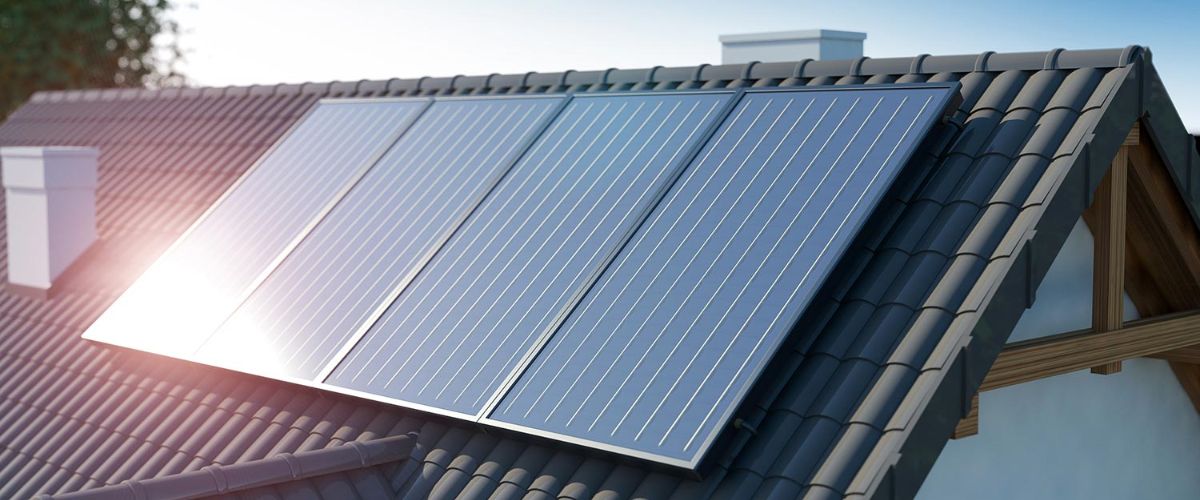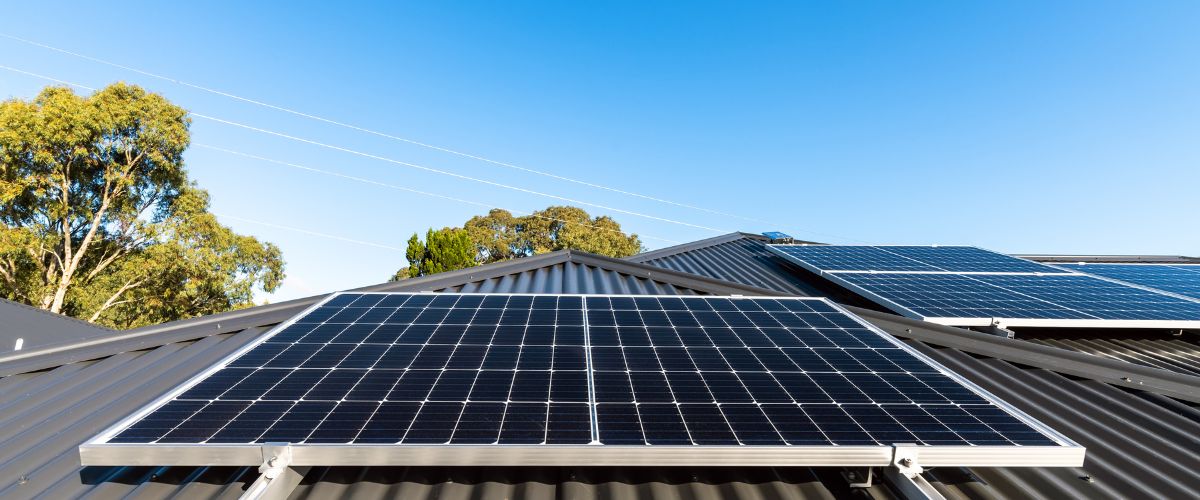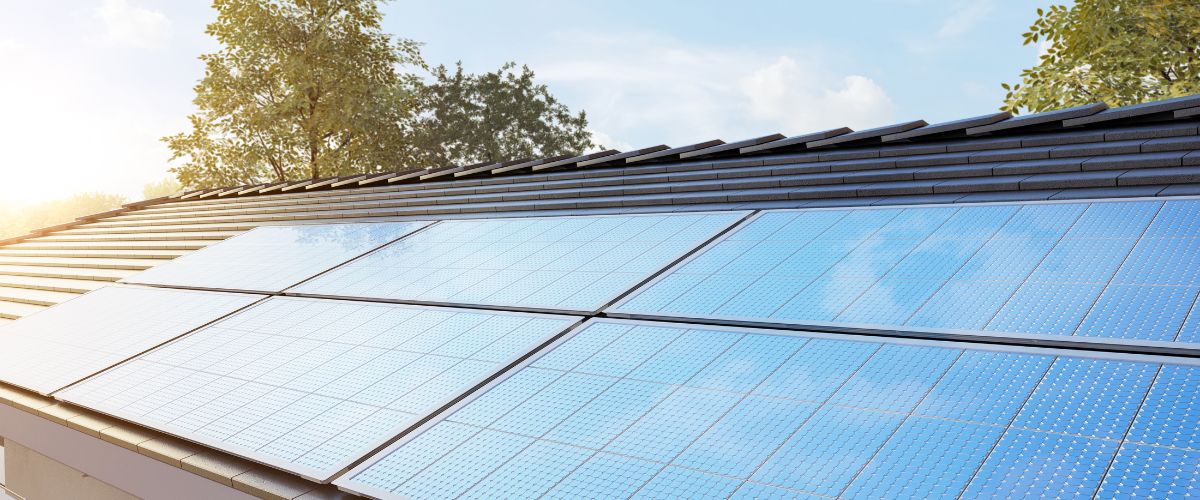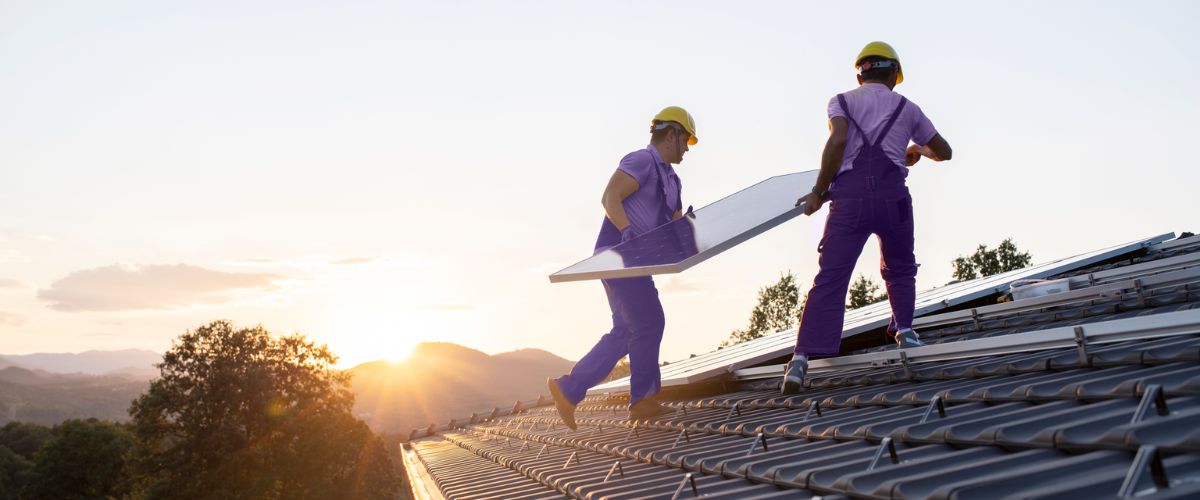Are Solar Panels Worth It?
Solar panels are absolutely worth it. They are a great way to generate clean, renewable energy for your home or business. With solar panels, you can reduce your energy consumption and carbon footprint for years to come. But will they pay for themselves? Solar panels are often marketed as a way to save money, but they can also be a way to make money.
Through microgeneration you can earn money for any electricity solar panels produce that you do not use. We currently offer our residential customers a rate of 18.5 cent per kWh exported to the grid.
Many people install solar panels for various reasons, such as wanting to use greener energy. It's important to understand when you'll see a financial return on your investment. With various incentives and support schemes available, now is a great time to make the switch to solar. In this blog post, you’ll learn if solar panels are worth the investment, the costs involved, and how much you really can save by installing solar panels in your home or business in Ireland in 2024.
How much do solar panels cost?
When we talk about “solar panels” in Ireland and the “cost of solar panels”, what we’re really talking about is the cost of a solar PV system. The panels are an important part of the equation, but it is important to distinguish that to generate energy, you will need solar PV panels and associated equipment, in other words a solar PV system. If you’re considering solar panels (in other words a solar PV system) for your home or business, understanding the costs involved is crucial. At Energia, we offer tailored solutions to meet the needs of both residential and commercial customers.
For homeowners, the cost of installing solar panels can vary depending on factors such as the size and type of panels chosen, as well as the associated installation costs. Our smart solar bundle offers customers a saving of up to €750 on solar installation as well as a 18.5 cent microgeneration export rate. But that’s not all! Our powerhouse 550w solar panels are designed to be energy efficient and space-saving. They generate more power per square meter than most other solar panels on the market.
For businesses, the cost of solar panels can vary significantly depending on factors such as the size of the premises and the energy requirements. Commercial solar panels tend to be larger and more complex than residential installations, which can affect the overall cost. But businesses and homeowners can take advantage of schemes like the SEAI Solar PV Grant, which provides financial support for installing solar panels.
Paying for your solar panels
Wondering how to finance your solar panels? There is some good news. Investing in solar panels is not just environmentally friendly choice, it’s also a smart financial move. Here’s how you can make it happen.
As mentioned previously, homeowners can take advantage of the SEAI Solar PV Grant and other SEAI home upgrade grants available in Ireland. If you’re a homeowner from January 2025, the Solar PV grant is:
- €700 per kWp up to 2kWp
- €200 for every additional kWp up to 4kWp up to a limit of €1,800
On top of that, Energia’s solar bundle offers customers on any Energia Smart tariff a saving of €750 on solar panel installation. The grants that are currently available make it easier to go solar, while reducing your reliance on the grid and carbon footprint.
How much can you save with solar panels?
Energia’s solar panels can help you generate money over time, let’s break down the potential savings.
A well-installed Solar system should reduce your electricity bills. How much is saved is dependent on several factors such as: the number of panels installed, wattage and efficiency of the panel, roof orientation, shading; general household energy consumption and how much you export back to the grid.
However, you must bear in mind the cost to install the Solar system and how long it will take to pay back this cost back. When you receive a quote for a Solar PV system the seller usually gives an indication of how long the PV system will take to pay for itself. This is quite a general calculation and is not unique to your house and how you use energy within the household so it should be viewed as an approximation. Seasonality is also a factor to consider. The system will produce more electricity in the brighter months when demand for electricity for lighting and space heating is less.
If you are at home during the day, you can make the most of the electricity generated by the Solar PV system by using household appliances, especially if it’s a bright sunny day. If the house is unoccupied during the day there are a number of avenues you can use to your advantage:
- Export the electricity and get paid for each unit exported
- Use a diverter to send any excess electricity to heat your hot water tank
- Send the excess electricity to a battery for you to use later. Many households now add solar battery storage to maximise the energy they generate.
Diverters and batteries are optional extras, and you have to consider how you use and manage their household energy prior to purchasing these extra options. Purchasing a battery allows your Solar PV system to become dynamic and responsive but batteries are still expensive to buy and need to be actively managed to get the most out of them.
Having said that, a typically sized system on a 3 bed semi-detached could save between €500-800 euro per annum, with a larger system potentially generating up to €1600. Bear in mind that these savings can fluctuate based on the above factors, as well as with the price of energy through the year.
How long do they last?
Solar panels are built to last. The solar panels on the market have a life span of 20-30 years. There are newer versions coming on the market all the time with longer lifespans. The lifespan of a solar panel is long enough to more than recoup the cost of installation, by helping you save on costs such as heating water. Their durable design and minimal maintenance requirements, makes solar panels a reliable source of electricity for your home or business. With proper care and maintenance, such as cleaning to remove dirt or debris, solar panels can even exceed their expected lifespan, allowing you to reap the benefits of renewable energy for years to come.
How long does it take for solar panels to be paid back?
In Ireland, individuals typically recoup the costs of their solar panels within 5-12 years. This payback period can depend on the energy prices and available incentives. At Energia, we understand the importance of making solar energy accessible and cost-effective for our customers. That’s why we offer tailored solutions to meet your needs. With our smart solar bundle, customers can enjoy savings on installation costs or SEAI grants to offset the initial investment.
Solar panel pros
Solar panels offer numerous advantages, making them a smart investment for modern living.
- Pollution Free: Solar energy causes no greenhouse gasses to be omitted after installation, so it doesn’t damage our environment.
- Reduces dependency on fossil fuels: The more solar energy is used, the less we will rely on the world’s finite fossil fuels.
- Low maintenance: Solar panels require less maintenance than many alternative forms of power generation and most panels will last between 25-30 years.
- Power every day: Although the sun may not shine every day in Ireland, solar panels will still generate some power even on cloudy days.
- Hot water: Although there is an upfront cost, solar panels are a fantastic way to generate hot water for a fraction of the price in the long run.
- Grants and tax incentives: There are grants and tax incentives for households and businesses in Ireland, solar panels are also VAT exempt making the switch to solar easy.
- Lifespan: Solar panels last between 25 and 30 years, although this is likely to increase as technology improves.
Solar panel cons
There are not a huge number of disadvantages to solar energy, but a few worth noting are:
- High initial installation cost: The initial investment into solar panels is high and they only begin to show return on investment after a few years. However, government grants and tax incentives in addition to improvements in solar technology are making them more accessible and they should cover their costs within a few years.
- Use up a lot of space: Solar panels still require a lot of surface area to create expected levels of power. Although, efficiency has increased from 15% to over 20% in the last decade and is growing all of the time.
- Battery Banks: Solar energy is only created during the day so every system will require a battery unit if they want to use Solar generated energy at night.
- Inconsistent power generation: Seasonality and weather will impact the production of power, however even on dull and gloomy days in Ireland solar panels can generate power.
- Aesthetics: Solar panels traditionally have an industrial appearance, which may not appeal to some homeowners. The newest panels are lower profile and blend in more with their environment.
Want to learn more?
Read the rest of our solar guides!



